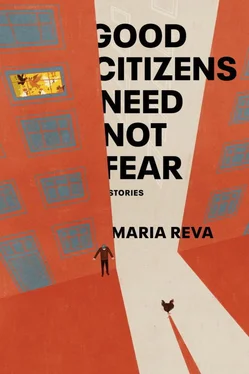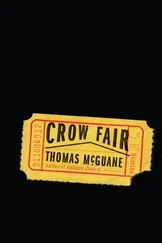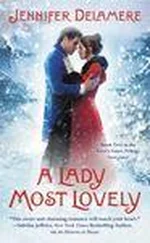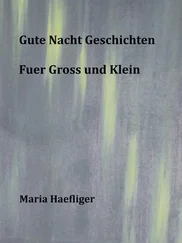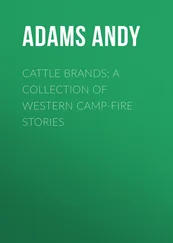Zaya, our solid Three just a few months back, has regressed to a Two. She has abandoned speech in favor of writing, but few of the children know how to read yet, so most of the time she points and grunts.
When it’s Zaya’s turn with the Commission, the director escorts her to the back of the building, to a small room that smells like moldy onions. The Commission members sit at the head of a long table. They’ve arranged themselves in descending order of height, like nesting dolls. The largest man, who has a thick mustache cascading from his nostrils, asks Zaya to confirm her name.
Zaya hopes this isn’t part of the test, but knows she must answer every question, without exception. She fears that her bottom is about to give out like a trapdoor, jams her knees together, afraid of wetting herself. To deflect, Zaya does what she saw a sanitarka do once, with the director, to get an extra day off. She twists her finger in her curls, peeks at the men through her thick lashes. She leans in, coy, as if she wants to tell them a secret. The men lean in, too. First she raises three fingers, then seven. When no one says anything, Zaya forces out a giggle: Silly, can’t you understand?
The largest man looks down at the file in front of him and laughs. “Row three, bed seven. Her sleeping assignment.” This answer satisfies the Commission.
The man in the middle, with oily porous cheeks, pushes four puzzle pieces across the table. Zaya fits them together. It’s a picture of a cat, dog, and parrot.
“Can you tell us what you see?”
Zaya stares at the cat, dog, and parrot. She feels the shape of the first word inside her mouth, whispers it into her hand. It doesn’t come out right, so she moves on to the next word, then the next.
CAT
DOG
PARROT
BIRD
THING
WITH
FEATHERS
PETS
ZOO
ANIMALS
FLUFFY
FRIENDS
The Commission watches the clock above the girl’s head. The inside of Zaya’s palm is warm and wet from her breath. At last the smallest of the men says, “One more question and you’re free to go. What’s the weather like outside?”
Zaya swivels around, looks out the window. All she wants is to run out of the building, out to where the weather is. Instead, she turns back to the Commission, presses her hands to her ears to keep from hearing herself, starts pushing the first word out. Its mangled syllables resonate between her palms. She wishes the Commission wouldn’t look at her. She shuts her eyes, bangs her fist against the table, louder, louder to keep from hearing herself, until the pressure in her chest breaks and the words fire out. “How bright and beautiful the sun,” she cries, “not one cloud can cover it up!”
—
The psychoneurological internat stands at the edge of a cliff, overlooking the Dnieper River. Patches of white plaster flake off the walls to reveal pink brick underneath, as if the building suffers from a skin condition. Long ago, before its gold-plated cupolas were dismantled and its eighteen copper bells melted down to canteen pots, before its monks were shot, it was a monastery. An iron fence, a recent addition, surrounds the grounds, its spiked rods rising high enough to keep in the tallest of the children, the space between the rods narrow enough to keep in the smallest.
The fresh batch of five-year-olds arrives in the back of a decommissioned camo truck, hair and faces dusty from the road. A tall woman in a dark green suit—their new director—orders the children to gather round in the courtyard. Her large smooth forehead emits a plastic sheen. One hand rises in greeting as the other does a head count. The children who can stand prop up those who can’t against the fence.
Zaya watches a group of teenagers blow dandelion fluff at each other in the distance, two of them barefoot, just as the previous director promised. She scans the courtyard for tire animals, sees in their stead fresh mounds of earth.
The woman points to a sheet-metal sign nailed to the arched entrance of the decommissioned monastery. “Can anyone tell me what that says?”
When no volunteers come forward, she reads the sign herself: “THERE IS NO EASY WAY FROM THE EARTH TO THE STARS.”
The reedy boy beside Zaya asks what stars are.
“To reach the stars you need to build a rocket. And we did that,” the new director says. “But let me tell you a secret.” She lowers her voice, and the circle of children tightens around her. “To build a rocket you need parts, and sometimes you get a crooked bolt, a leaky valve. These have to be thrown away. If they aren’t, the rocket won’t launch. Even if it does launch, it might explode into a million pieces.”
The children nod along.
“That’s just the way it is, when you’re reaching for the stars.” She casts a magnanimous gaze over the group. “Sometimes you get defective parts.”
The children nod along.
“But we don’t throw people away. We take care of them. You can bet on that for the rest of your life.” She straightens up. “Something to think about, when you’re feeling blue.”
The children follow the director into the building. They file along a corridor, past the canteen; past a storage room containing a blackboard; past the latrine where a bald boy squats in the shadows, gargoyle-like, his shoulder blades jutting out; past a pair of twin girls balancing on one leg each; past a door with a tiny square window too high for Zaya to see through. They reach a cavernous hall crowded with beds and children. The painted walls are crowded, too, with scenes of wrath and deliverance: flames rise from the floor; a red snake coils up a wall and wraps its tongue around a thrashing figure; above are curly clouds, men with wings, men without wings, disembodied wings twisting around each other, stretching to the domed ceiling, at the center of which is a woman cradling a baby. The baby stares down at Zaya day and night wherever she is in the hall, its hand up, on the verge of uttering something important.
In the following months, Zaya adds to the pictures to pass the time. Using a sharp stone, she scratches the men’s mouths open to let them speak. She wishes she could reach the never-sleeping baby, but it sits too high.
—
When winter comes, cold whistles through the cracks in the windows and into the lungs of the children.
It begins with a cough. The tickle in Zaya’s throat burrows into her chest, blossoms into double pneumonia. She drifts in and out of a fevered fog. Noises filter into her dreams—the ruffle of sheets, snot bubbling up and down endless nasal passages, the distant cowbells from a village, the clack of trains from a rail yard.
Outside the window, a couple of older, healthier children chatter as they dig another pit. When she hears them shoveling earth back into the hole, Zaya feels for damp soil on her own hot face. But it isn’t there; it’s for someone else.
—
Green buds erupt on the branches outside. Sunrays on bedsheets shine brighter.
When Zaya wakes between fevers, she sees a pair of withered arms and legs on her bed. She tries to move; the matchstick limbs answer. She covers them with her sheet.
Zaya looks at the beds around her. The room is hushed, so she’s surprised to find most of her neighbors awake, blinking at the ceiling. She’s in a different room than before, a white-tiled room—the room on the other side of the door with the tiny square window.
[1] [1] [1] [1] [1] [1] [1]
[1] [1] [1] [1] [1] [1] [1]
[1] [1] [1] [1] [1] [1] [1]
Zaya could try walking again, but where would she go? Everything aches, as if a fire has ravaged her insides. She lays her head down and goes back to sleep.
Читать дальше
